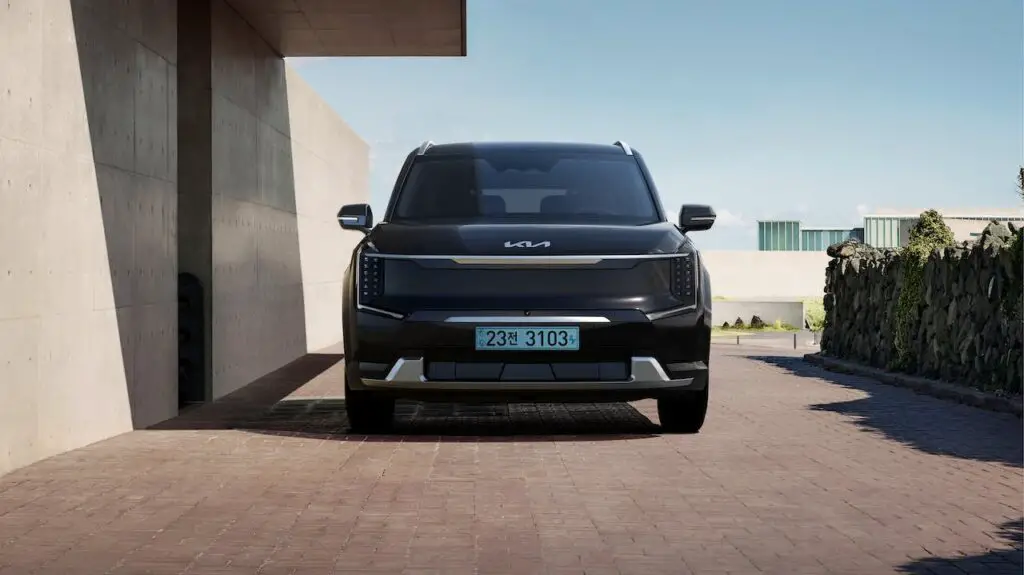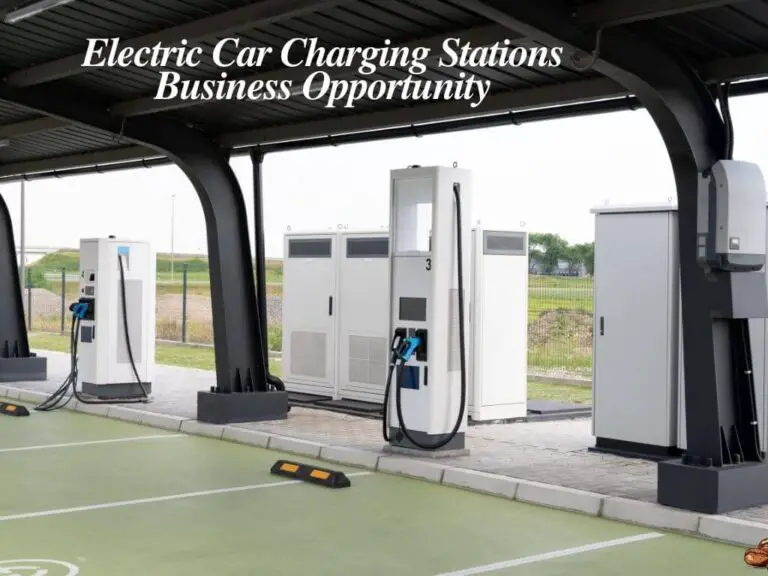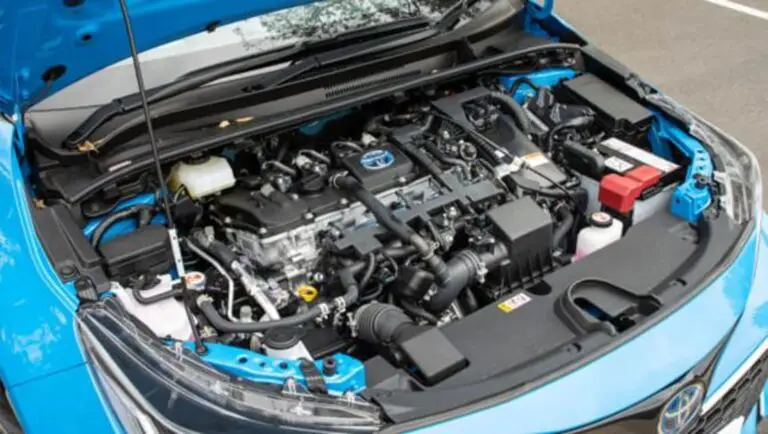Electric cars help the environment by reducing carbon emissions and improving air quality. They produce zero tailpipe emissions, mitigating the detrimental impact of traditional gasoline-powered vehicles on the environment.
How Electric Cars Help the Environment, Electric cars are an eco-friendly alternative that significantly contributes to the reduction of greenhouse gas emissions, leading to cleaner air and a healthier planet for future generations. Embracing electric vehicles is an essential step towards combating climate change and creating a sustainable future.
Reducing Air Pollution And Greenhouse Gas Emissions
Electric cars have emerged as a game-changer in the world of transportation, primarily due to their significant positive impact on the environment. By adopting electric cars on a wider scale, we can make significant strides towards reducing air pollution and greenhouse gas emissions, mitigating the adverse effects of climate change. In this article, we will explore the various ways in which electric cars contribute to this crucial cause.

Decrease In Exhaust Emissions From Electric Cars
One of the most notable advantages of electric cars is their ability to drastically reduce exhaust emissions. Unlike conventional vehicles that run on fossil fuels, electric cars run solely on electricity, which is a much cleaner energy source. By eliminating the burning of fossil fuels, electric cars produce zero tailpipe emissions, reducing the release of harmful pollutants into the atmosphere.
This reduction in exhaust emissions has a direct and positive impact on air quality. According to studies, it has been found that the carbon dioxide emissions of an electric car are significantly lower compared to that of a traditional gasoline-powered car. Emitting lower levels of carbon monoxide, hydrocarbons, and nitrogen oxides, electric cars help in curbing the negative impact of vehicular pollution on human health.
Reduction In Particulate Matter And Nitrogen Oxide Emissions
The use of electric cars also leads to a significant reduction in particulate matter and nitrogen oxide emissions, which are major contributors to air pollution and respiratory problems. Particulate matter, commonly referred to as PM, refers to tiny particles suspended in the air that can be harmful when inhaled. Electric cars produce considerably fewer PM emissions, presenting a cleaner and healthier alternative to conventional vehicles.
In addition, electric cars produce lower levels of nitrogen oxide (NOx) emissions compared to their gasoline-powered counterparts. NOx emissions not only contribute to the formation of smog but also have harmful effects on human health, particularly respiratory conditions such as asthma. By minimizing NOx emissions, electric cars play a vital role in improving air quality and reducing the occurrence of respiratory ailments.
Lowering Greenhouse Gas Emissions From The Transportation Sector
The transportation sector is a significant contributor to greenhouse gas emissions, which are a major cause of global warming. Electric cars have emerged as an effective solution to this problem by significantly reducing greenhouse gas emissions. By relying on electricity rather than fossil fuels, electric cars help in decreasing the carbon footprint associated with transportation.
Compared to gasoline-powered cars, electric vehicles emit lower greenhouse gases such as carbon dioxide, methane, and nitrous oxide. This reduction in greenhouse gas emissions not only mitigates climate change but also helps in preserving the environment and supporting sustainable development.
In conclusion, electric cars offer immense potential in reducing air pollution and greenhouse gas emissions. By decreasing exhaust emissions, lowering particulate matter and nitrogen oxide emissions, and contributing to the reduction of greenhouse gases in the transportation sector, electric cars present a cleaner, more sustainable form of transportation for a greener future.
Minimizing Noise Pollution In Urban Areas
Electric cars play a crucial role in reducing noise pollution in urban areas, showcasing their positive environmental impact. Their quiet operation contributes to a more peaceful and harmonious living environment, benefiting both residents and wildlife. Additionally, the use of electric vehicles helps to mitigate the detrimental effects of noise pollution on human health and well-being, making cities a more pleasant place to live.
Noise pollution is a significant issue in urban areas, causing disturbances and negatively impacting the quality of life for city dwellers. However, electric cars offer a solution to this problem by providing a quieter alternative to combustion engine vehicles. Their quiet operation not only benefits the environment but also enhances the overall living conditions in residential areas. Let’s take a closer look at how electric cars help minimize noise pollution and its associated effects.
Quiet Operation Of Electric Cars Compared To Combustion Engine Vehicles
Electric cars are known for their whisper-quiet operation, thanks to their electric motors. Unlike combustion engine vehicles that emit noise due to internal combustion, electric cars produce minimal sound when in motion. The absence of engine revving, exhaust noises, and constant vibrations make electric vehicles significantly quieter, creating a more peaceful environment in urban areas.

Benefits For City Dwellers And Residential Areas
The noise reduction provided by electric cars brings numerous benefits to city dwellers and residential areas. Here are some of the advantages:
1. Improved sleep quality: Quieter streets result in reduced noise levels during the night, enabling city dwellers to sleep more peacefully. This improvement in sleep quality leads to better overall health and well-being.
2. Enhanced concentration and productivity: Lower noise levels in residential areas allow individuals to concentrate better on tasks, whether at work or at home. This increased focus boosts productivity and effectiveness in various areas of life.
3. Peaceful living spaces: Residential areas are transformed into tranquil environments, providing a peaceful retreat from the hustle and bustle of urban life. The absence of constant noise pollution allows residents to enjoy their surroundings and relax in their homes.
Enhanced Quality Of Life And Reduced Noise-related Health Issues
The decreased noise pollution resulting from the use of electric cars contributes to an enhanced quality of life for urban dwellers. Here’s how it positively impacts their well-being:
1. Reduced stress levels: Continuous exposure to high noise levels can cause chronic stress, impacting mental and physical health. Electric cars’ quieter operation helps alleviate this stress and promotes a calmer living environment.
2. Lower risk of hearing damage: Prolonged exposure to loud noises can lead to irreversible hearing damage. By minimizing noise pollution, electric cars contribute to preventing hearing loss and protecting the hearing health of individuals in urban areas.
3. Decreased cardiovascular issues: Excessive noise has been linked to an increased risk of cardiovascular diseases. Electric cars help diminish noise-related factors that contribute to these health issues, benefiting the overall cardiovascular well-being of city dwellers.
In conclusion, electric cars play a significant role in minimizing noise pollution in urban areas. Their quiet operation compared to combustion engine vehicles leads to various benefits for city dwellers and residential areas. By providing a more peaceful environment, electric cars enhance the quality of life and improve overall health and well-being, making them an eco-friendly solution for urban transportation.
Preserving Natural Resources And Reducing Dependence On Fossil Fuels
Electric cars are playing a vital role in preserving natural resources and reducing our dependence on fossil fuels. By embracing this cleaner and more sustainable alternative, we can make a significant impact on the environment. In this article, we will explore the key ways in which electric cars contribute to achieving these goals.
Decrease In Demand For Oil And Its Impact On The Environment
One of the most significant advantages of electric cars is the decreased demand for oil. As traditional gasoline-powered vehicles heavily rely on fossil fuels, their consumption contributes to harmful greenhouse gas emissions and climate change. By transitioning to electric cars, we reduce our reliance on oil, leading to a decrease in carbon dioxide emissions and air pollution. This shift also helps conserve valuable natural resources and protect fragile ecosystems from the negative impacts of oil extraction.
Conservation Of Non-renewable Resources
Another important aspect of electric cars is their role in conserving non-renewable resources. Unlike traditional vehicles that rely on finite fossil fuel reserves, electric cars primarily use electricity stored in batteries. This means that no matter how much electricity is consumed, the resources used to generate it can be replenished through various renewable energy sources. By reducing our consumption of non-renewable resources, we promote sustainable practices and safeguard these valuable resources for future generations.
Shifting Towards Renewable Energy Sources For Charging Electric Cars
To ensure a truly sustainable transportation system, it is essential to shift towards renewable energy sources for charging electric cars. By harnessing the power of wind, solar, hydro, and other renewable energy sources, we can effectively reduce the environmental impact of electric vehicles. Not only does this help decrease carbon emissions, but it also creates a positive cycle of renewable energy production, leading to cleaner air and healthier ecosystems. Additionally, investing in renewable energy infrastructure also promotes job creation and economic growth.
In conclusion, electric cars offer significant benefits in terms of preserving natural resources and reducing our dependence on fossil fuels. By decreasing the demand for oil, conserving non-renewable resources, and shifting towards renewable energy sources for charging electric cars, we can contribute to a more sustainable future. Making the switch to electric vehicles is not only good for our environment, but it also helps drive innovation and progress towards a greener and cleaner transportation system.
Limiting Water Pollution And Oil Spills
Electric cars have emerged as a sustainable alternative to traditional combustion engine vehicles, primarily due to their positive impact on the environment. One of the key advantages of electric cars is their ability to limit water pollution and oil spills, which have been significant concerns associated with conventional vehicles powered by internal combustion engines. By adopting electric vehicles, we can decrease the occurrence of oil leaks and spills, prevent oil contamination in rivers, lakes, and oceans, and safeguard our precious aquatic ecosystems.

Decrease In Oil Leaks And Spills Associated With Combustion Engine Vehicles
One of the major drawbacks of conventional vehicles that run on gasoline or diesel is the frequent occurrence of oil leaks and spills. When these vehicles develop mechanical issues or experience accidents, they are at risk of leaking harmful oil and other hazardous fluids onto roads and parking lots. These spills have detrimental effects on the environment and can contaminate nearby water sources.
However, electric cars do not use liquid fuels like gasoline or diesel, eliminating the risk of oil leaks. Since they operate using electric motors powered by batteries, there is no need for storing or distributing fuel that could potentially spill and pollute our waterways.
Prevention Of Oil Contamination In Rivers, Lakes, And Oceans
Traditional vehicles have been responsible for significant oil pollution in our rivers, lakes, and oceans. When oil leaks from a car on a road, it can flow into storm drains that ultimately lead to bodies of water, contaminating them with toxic substances. This contamination poses a serious threat to aquatic life and ecosystems.
On the other hand, electric cars, being free from oil usage, eliminate this risk altogether. Without the need for lubricating oils and other fluids associated with combustion engines, electric vehicles contribute to cleaner waterways, ensuring the preservation of our freshwater resources and the protection of marine life.
Positive Impact On Aquatic Ecosystems
The adoption of electric cars presents a significant opportunity to positively impact aquatic ecosystems. By reducing the likelihood of oil spills and leaks, we can help preserve the delicate balance of our rivers, lakes, and oceans. Aquatic ecosystems are home to a diverse range of plants and animals, and any contamination from oil spills can disrupt their habitats and life cycles.
With electric cars becoming increasingly popular, we are witnessing a reduction in the harmful impacts on aquatic ecosystems. By choosing to drive electric vehicles, we are actively contributing to the protection and restoration of these vital ecosystems, ensuring a sustainable future for the planet.
Enhancing Energy Efficiency And Promoting Renewable Energy Adoption
Electric cars are rapidly gaining popularity as a sustainable transportation solution. Not only do they reduce our reliance on fossil fuels, but they also contribute to the overall enhancement of energy efficiency and the promotion of renewable energy adoption. In this post, we will explore how electric cars help transform our energy landscape by focusing on two main aspects: the higher energy efficiency of electric cars compared to traditional vehicles and the integration of electric car batteries into energy grids. Let’s delve into the details!
Higher Energy Efficiency Of Electric Cars Compared To Traditional Vehicles
The energy efficiency of electric cars is a key advantage that sets them apart from their gasoline-powered counterparts. While conventional vehicles waste a significant amount of energy in the form of heat during the combustion process, electric cars convert around 77-80% of the electrical energy from the grid to power the wheels. This remarkable efficiency not only maximizes the utilization of available energy but also reduces greenhouse gas emissions, making electric cars a cleaner and more sustainable option for transportation.
Integration Of Electric Car Batteries Into Energy Grids
Electric car batteries have the potential to transform our energy grids, facilitating the integration of renewable energy sources and enhancing their stability. By utilizing vehicle-to-grid (V2G) technology, electric cars can act as mobile energy storage units, enabling them to supply electricity back to the grid during peak demand periods. This bidirectional flow of energy helps balance the load, support the grid’s stability, and reduce the need for additional power infrastructure. Ultimately, it contributes to the broader adoption of renewable energy sources by enabling their seamless integration into our electricity distribution systems.
Utilization Of Renewable Energy Sources For Charging Infrastructure
In line with the goal of promoting renewable energy adoption, the charging infrastructure for electric cars is gradually shifting towards utilizing renewable energy sources. This shift is two-fold: firstly, renewable energy-powered charging stations are being established to power electric vehicles, ensuring their carbon footprint remains minimal during the charging process. Secondly, by encouraging home charging systems powered by solar panels or wind turbines, electric car owners have the flexibility to tap into renewable energy sources for their vehicle’s energy needs. This holistic approach further reduces reliance on traditional fossil fuel-based power generation and accelerates the clean energy transition.
So, by enhancing energy efficiency, integrating batteries into energy grids, and utilizing renewable energy for charging infrastructure, electric cars play a pivotal role in transforming our energy landscape and promoting the widespread adoption of renewable energy sources. As they continue to evolve and become more accessible, electric cars have the potential to drive us towards a cleaner and more sustainable future.
Frequently Asked Questions Of How Electric Cars Help The Environment
Are Electric Cars Better For The Environment Than Gasoline Cars?
Electric cars have a significantly lower impact on the environment compared to gasoline cars. They produce zero tailpipe emissions, reduce greenhouse gas emissions, and help combat air pollution. By driving an electric car, you can contribute to improving air quality and reducing your carbon footprint.
How Do Electric Cars Reduce Greenhouse Gas Emissions?
Electric cars reduce greenhouse gas emissions by operating on electricity rather than burning fossil fuels. As a result, they produce zero tailpipe emissions, helping to combat climate change. By transitioning to electric cars, we can decrease our reliance on fossil fuels and work towards a cleaner, greener future.
Do Electric Cars Help Reduce Air Pollution?
Yes, electric cars help reduce air pollution. They produce zero tailpipe emissions, which means no harmful pollutants are released into the air. This helps to improve air quality and protect public health. By choosing an electric car, you can contribute to reducing air pollution and creating a healthier environment for everyone.
Conclusion
Electric cars have emerged as a powerful solution to combat environmental issues. As we have seen throughout this blog post, these vehicles produce zero emissions, reducing air pollution and improving the overall air quality. With advancements in technology and growing infrastructure support, electric cars are becoming more accessible, making it a viable option for a sustainable future.
By embracing electric vehicles, we can contribute to a cleaner and greener planet, ensuring a healthier environment for generations to come. Embracing electric vehicles is the way forward.







